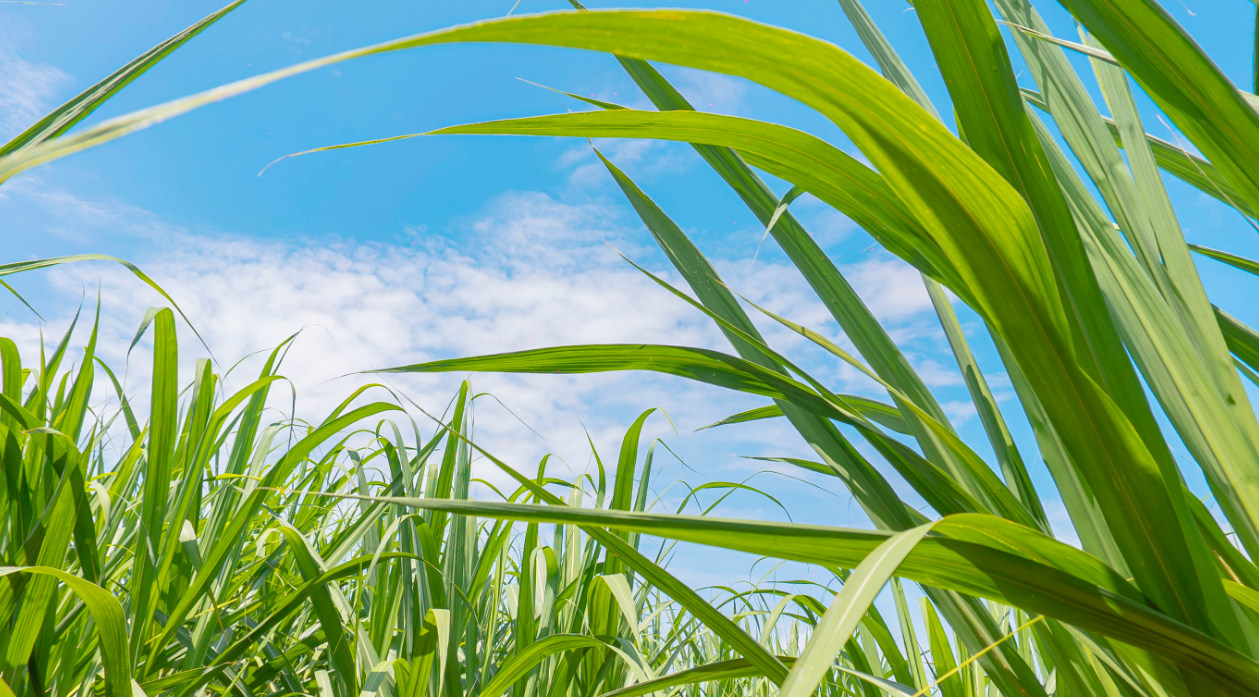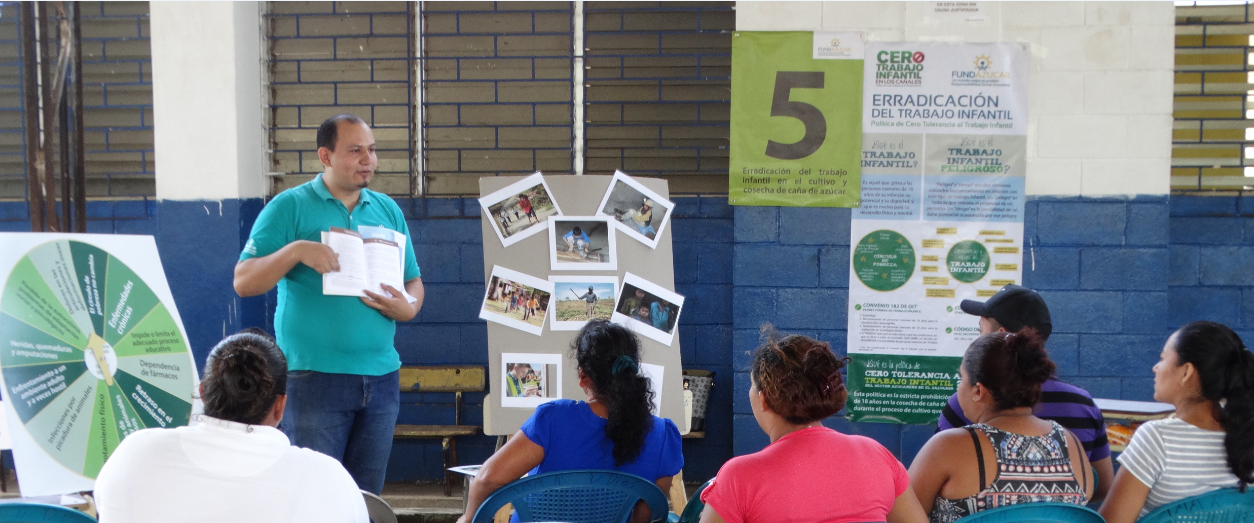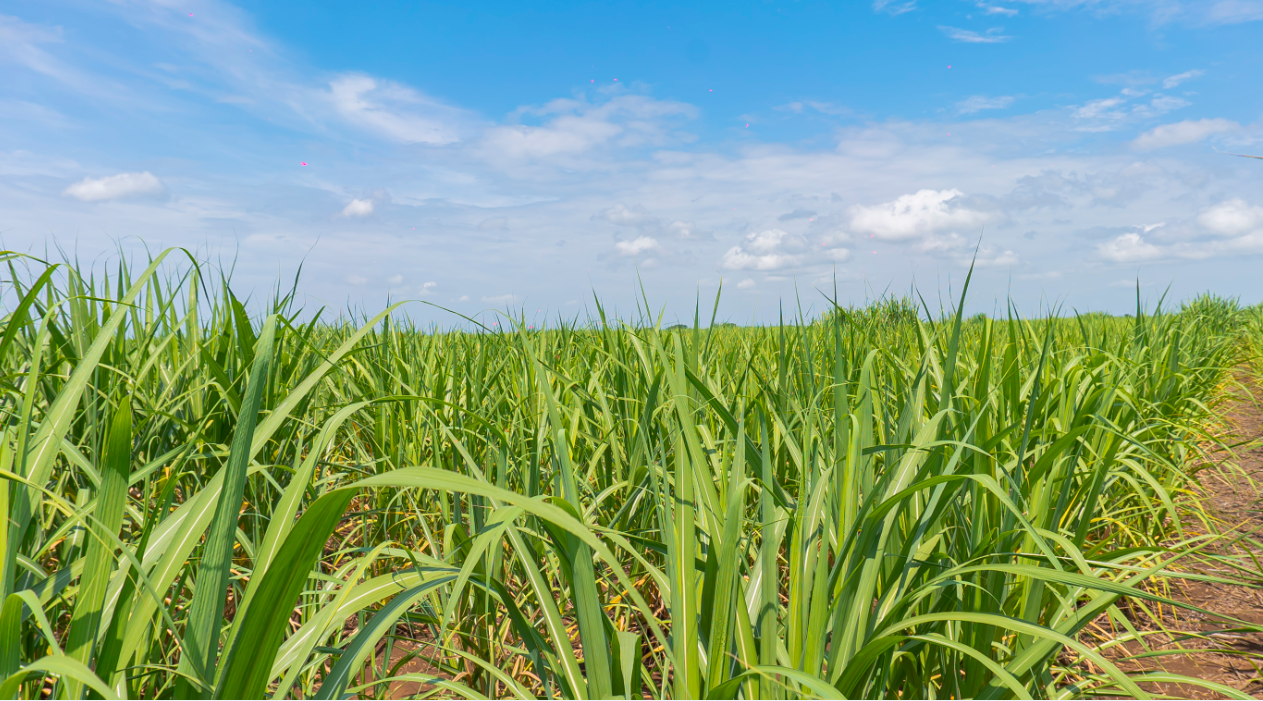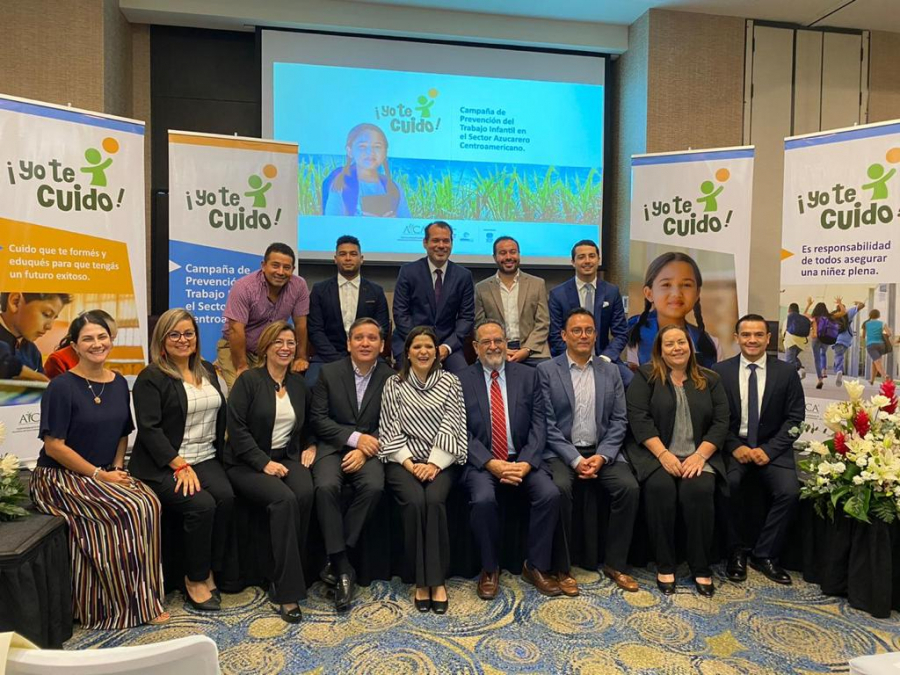"With this simple, but also very powerful phrase, we seek to make people see that all of us, as parents, teachers, members of the sugar sector and the surrounding communities, can and should take care of our children and adolescents" , stated Mario Amador, President of AICA.

Through workshops, talks, coordination meetings, contests and multiple informative materials, the campaign aims to reach, among others, workers, sugarcane producers, as well as members of the communities in the areas of influence of the sugar sector throughout the Central American region.
This effort seeks to disseminate information on what child labor is, its causes and effects, the legal consequences it generates, as well as the conditions under which adolescent labor is permitted, while promoting a paradigm based on respect and care for children and adolescents.
According to Juan Carlos Fernández, Executive Director of AICA, "the sugar sector has implemented multiple successful programs and initiatives against child labor throughout Central America for several years, which have changed the reality of the sector. This campaign is a step forward in consolidating the results obtained".
Driving associations

This 2022 child labor prevention campaign is promoted by the Asociación de Azucareros del Istmo Centroamericano (AICA) and its member organizations: Asociación de Azucareros de Guatemala (ASAZGUA), Asociación Azucarera de El Salvador, Asociación de Productores de Azúcar de Honduras (APAH), Comité Nacional de Productores de Azúcar de Nicaragua (CNPA), Liga Agrícola Industrial de la Caña de Azúcar de Costa Rica (LAICA) and Asociación de Azúcares y Alcoholes de Panamá (AZUCALPA).
It also has the technical support of the International Labor Organization (ILO), as well as the collaboration of the Coca-Cola Company and Red de Integración Centroamericana por la Responsabilidad Social Empresarial (INTEGRARSE).
What is child labor
Child labor" is defined as work that deprives children and adolescents of their childhood, their potential and their dignity, and that is harmful to their physical and psychological development; that is, work that is dangerous and harmful to their physical, mental or moral well-being, or that interferes with their schooling (by depriving them of the possibility of attending classes, forcing them to leave school prematurely, or requiring them to combine study with heavy and time-consuming work).
Zero Tolerance Policy for Child Labor
This policy is part of the "Good Practices for Sugarcane Production" effort, promoted by Fundazúcar El Salvador, in coordination with the Asociación Azucarera de El Salvador.

The Policy is the strict prohibition of persons under 18 years of age in the sugarcane harvest and in activities during the cultivation process that are prohibited by law and has 5 strategic axes:
- Permanent awareness-raising - implemented through an annual program to disseminate information on the existing legal framework, as well as the negative impacts of child labor.
- Standardization of actions, which includes: o Clauses in sugarcane purchase and sale contracts: The sugar agribusiness, through Consejo Salvadoreño de la Agroindustria Azucarera (CONSAA) included since 2007 clauses in the sugar cane purchase-sale contracts between producers and sugar mills, which specifically prohibits the use of child labor for the cutting of sugar cane and the sanction of terminating the cane purchase contract if it is verified that child labor is used for its harvest.
o Action protocol that serves as an action guide for sugar mills in the event of finding minors working in sugar cane cultivation.
- Monitoring and audits - seek to ensure and verify the proper implementation of the policy.
- Strategic alliances - consist of promoting joint actions with other public and private actors, including civil society organizations, with similar objectives in the fight against child labor, as well as alliances with the governmental sector.
- Communication with the purpose of sharing the experience acquired on the eradication of child labor, we participate in various forums at international level.
Fundazúcar has led the country's efforts in the sugar sector through the "Zero Tolerance to Child Labor Policy", implemented continuously and permanently since 2007, the most recent audited figures show a 99% reduction in this area1.
Two instruments have been developed to give sustainability to the eradication of child labor:
- Zero Tolerance Policy for Child Labor in the cultivation and harvesting of sugarcane.
- Manual of Good Agricultural Practices for the cultivation and harvesting of sugarcane, which contains national and international legislation on the environment, occupational health and safety, working conditions, and the eradication of child labor, thus contributing to the sustainability of efforts.
The sustainability strategy of the sugar sector, integrates the Sustainable Development Goals (SDGs), specifically target 8.7: eradicate child labor in all its forms, by 2025, the sugar sector contributes to achieving it, adopting effective measures and ensuring the prohibition of child labor in the cultivation and harvesting of sugar cane, through the Zero Tolerance to Child Labor Policy.
 English
English  Español
Español 
